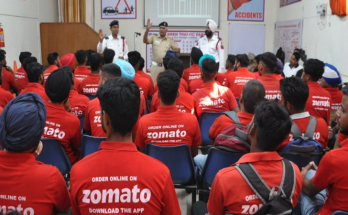By A.S. Josie
In a shocking reversal of proper democratic procedure, trade unions and others were only given an opportunity to formally present their views on the controversial Factories (Tamil Nadu Amendment) Act, 2023 after its passage through the Assembly, almost certainly to ensure it was a done deal.
However, vigorous street protests by numerous groups and opposition parties – left trade unions as well as the DMK’s own trade unions – as well as some timely and detailed media criticism of the vagueness of the proposed Act, was thankfully sufficient to make Chief Minister Stalin, on 24.4.2023, to hold the Bill in abeyance. For now. It will not get notified as is.
Yet we need not wait too long for when another Bill will be brought back to the table, for it is certain that an attack on labour rights and work conditions of workers in Tamil Nadu is waiting in the wings.
It must also be remembered as to how irresponsible or propagandistic much of Tamil Nadu media was, when it falsely described the TN Bill as implementing a 12 hour day and a 48 hour work week, making it seem like 3 full days a week would be paid holidays for workers, and, moreover, that women, in particular, welcomed such flexible time-off.
This was in fact a better description of the Factories (Karnataka Amendment) Act, 2023, which was passed earlier this year, in February 2023.
The Tamil Nadu Bill, in contrast, removed all time-limits and safety protections – thereby granting full authority to employers to deploy workers into production lines for even over 12 hours, as well as for more than 48 hours weekly. This Bill would not have passed any legal test, and this too must have factored into its being held in suspension.
Major Apple suppliers, such as Foxconn, Wistron and Pegatron, are locating themselves all over India, based on financial investment packages and favourable laws – in Gujarat, Karnataka, Telangana, Tamil Nadu, for starters. Each state’s labour laws and labour situation are being rewritten, as states compete to attract investment capital.
12 Hour shift
At a minimum, then, we can anticipate that the next version of the Tamil Nadu’s Factories Amendment Bill will actually look something like the Karnataka Act – containing specific details on work hours – and, this time, by not granting full employer discretion, it will also survive review.
It is worth then looking at the Karnataka Act as a sign of things to come in Tamil Nadu. Of course the Tamil Nadu Bill could look better or worse. With the discussion now opened between all parties, the hope is that it will be better.
The core elements of the Factories (Karnataka Amendment) Act 2023 are: moving from having 8 hours shifts (2 or 3 shifts in a day) to 12 hour shifts (2 in a day). The significance of this longer working day is clear – fewer workers need be hired, shift change time is not lost, and overtime need not be paid.
Whereas there is a provision in the Act for consent of the worker to work a 12 hour day, the consequence of not giving consent is obvious, especially as India’s reserve pool of labour now outstrips China’s.
Secondly, the total number of hours a worker must work without a break is now 6 hours (up from 5), showing the greater intensity being demanded.
Double overtime would be provided for over 12 hours daily or 48 hours weekly, but a maximum of overtime hours over a 3 month period has been raised from 75 to 144. In other words, the expectation is that, far more work is going to be foisted on the worker, who will not refuse it.

Restructuring of the Indian workplace
The other significant alteration brought about by the Karnataka Act is the considerable scope given to employ women workers for night shifts, with numerous sexual harassment avoidance provisions built into the Act.
Women workers in 12 hour shifts signals a wholescale restructuring of the Indian workplace, in order to prepare for the rigours of the MNC electronics industry, which hitherto has been concentrated in China and Asia.
The strict zero-Covid policy in China, which made large prisons out of factory towns, was so oppressive that Chinese workers have been agitating at their unpaid wages and oppressive conditions, even violently, and at cost to their lives. This has forced the brands and electronics manufacturers to move some manufacturing from China to elsewhere.
Finding India willing to hand over its workers to them and offer significant financial incentives as well (the details of which are not available in the public domain, but it is stated there was a 6 billion $ incentive provided in 2020 to Apple), India has become the new favoured destination.
Whereas China will continue to manufacture the bulk of iPhones for some time – for instance, it will take 8 years to move 10% of Apple’s production capacity out of China – with the move of some industry, there will be job creation in India. Foxconn – Apple’s largest supplier at 70% – has also recently stated it is seeking cooperation in India to manufacture chips, electric vehicles, macBooks, iPads, as well as smartphones.
So an ongoing push to drastically amending labour law, state by state, is to be expected. Indian workers will have to bear on their bodies the consequence of the highly fast-paced, competitive, volatile electronics industry.
Let us see some of the pressures in this industry, beyond poor work conditions. It has been estimated that, at a 100 euro factory price for a smartphone, about 2 euros goes to the worker.
Full control of workers’ time
By the time the phone is sold to the final consumer at 500 euro – the difference being the massive mark-ups for logistics, branding, and marketing – the labour input cost falls to only .004 % of the final price. The difference in the margins gained by the manufacturer (eg. Foxconn) and by the retailer are huge. This pressure gets internalized, and thrust onto labour, who is 40% of the factory (non-materials) cost.
Hence, the small manufacturer margins, internalized pressure, as well as the constant rapidly changing demands from the brands on production designs, drives the manufacturer, to extract more and more, and drive down labour costs, to maintain its margins.
Full control of workers’ time and body becomes imperative in this model, as seen in China’s “closed loop” manufacturing model, where workers never leave the workplace at all. This explains why 2 shifts of 12 hours, plus huge overtime, is intended to be the norm.
Our discussion has not even considered the high use of chemicals and exposure to toxins in the electronics assembly world.
Before the next TN labour amendment bill is passed, let all these aspects be openly discussed.
Unions must be permitted within the industry, so as to monitor maintain decent work conditions in a stressful industry. The new Bill should also contain model employment contracts which would guarantee that there would be no further whittling away of labour rights.
Subscribe to support Workers Unity – Click Here
(Workers can follow Unity’s Facebook, Twitter and YouTube. Click here to subscribe to the Telegram channel. Download the app for easy and direct reading on mobile.)






